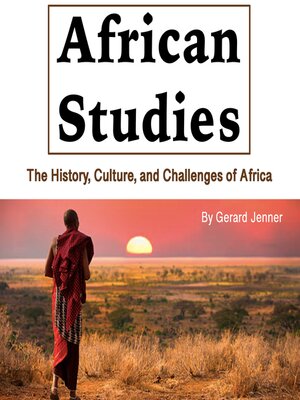African Studies
audiobook (Unabridged) ∣ The History, Culture, and Challenges of Africa
By Gerard Jenner

Sign up to save your library
With an OverDrive account, you can save your favorite libraries for at-a-glance information about availability. Find out more about OverDrive accounts.
Find this title in Libby, the library reading app by OverDrive.



Search for a digital library with this title
Title found at these libraries:
| Library Name | Distance |
|---|---|
| Loading... |
This audiobook is narrated by a digital voice.
The morning call to prayer echoed across the bustling streets of Lagos as Adaora Okafor adjusted her headwrap and prepared for another day at the African Development Bank's regional office. As a financial analyst specializing in infrastructure development, she represented a new generation of African professionals who were redefining the continent's relationship with global markets while maintaining deep connections to their cultural heritage. Her work involved evaluating loan proposals for everything from hydroelectric dams in Ghana to fiber optic networks in Kenya, projects that would shape Africa's economic future for decades to come.
The concept of African Renaissance, popularized by former South African President Thabo Mbeki in the late 1990s, encapsulated the growing confidence of African leaders and intellectuals who rejected the persistent narrative of Africa as a continent defined primarily by poverty, conflict, and dependency. This intellectual movement drew inspiration from historical examples of African achievement while articulating visions for political, economic, and cultural renewal that would establish Africa as an equal partner in global affairs rather than a perpetual recipient of aid and intervention.
Professor Wole Ogundipe at the University of Cape Town had spent decades studying the philosophical foundations of African identity, tracing the evolution of concepts like ubuntu, the Southern African philosophy emphasizing interconnectedness and shared humanity, through contemporary applications in conflict resolution, community development, and international relations. His research demonstrated how traditional African value systems provided frameworks for addressing modern challenges while offering alternatives to Western models of individualism and competition that had often proven inadequate for African contexts.







